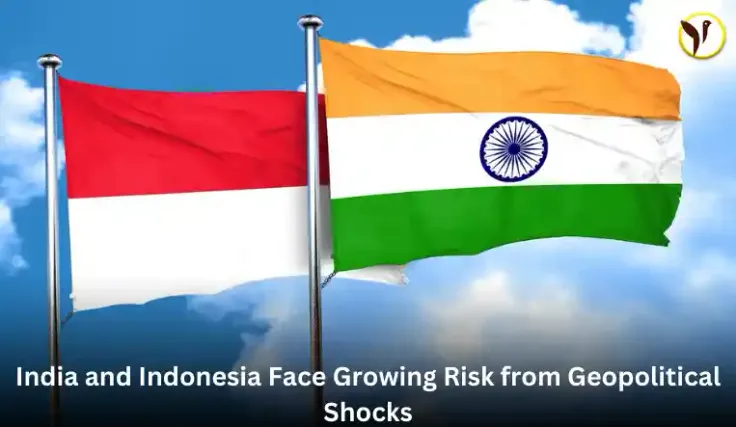Emerging markets in Asia, including India and Indonesia, are bracing for the impact of a complex interplay of high oil prices, a strengthening US dollar, and geopolitical instability. These factors are raising concerns among economists about the potential fallout, with the ongoing Israel-Hamas conflict, in particular, causing anxiety as it may affect oil supply and economic growth. Furthermore, the surge in the US dollar and long-term Treasury yields compounds the risks, especially for countries with high current-account deficits.
Over the past three months, Brent crude oil prices have surged nearly 20%, and if the Middle East conflict expands to involve Iran, it's estimated that prices could skyrocket to $150 per barrel, up from the current $90. Iran supports groups like Hamas, designated as a terrorist organisation by the US and EU, and backs Hezbollah in Lebanon. These geopolitical concerns come on top of other global issues, such as Russia's prolonged war in Ukraine and simmering tensions between the US and China.
Economists are particularly concerned about countries like India, Thailand, the Philippines, and Indonesia, which could become more vulnerable to worsening terms of trade if high oil prices persist. They also face risks as "twin deficit" economies, running both current account and fiscal deficits, potentially making them more susceptible to capital outflows.
Sri Lanka and Pakistan, due to their high external debt positions, are considered the most at risk, but Indonesia and India are also vulnerable due to their current-account deficits that require external financing. Rising US Treasury yields, driven by inflation concerns related to higher oil prices, present another challenge for nations with significant budget deficits as they may struggle to raise funds in global markets.
The attractiveness of emerging Asian bonds for investors has diminished, with the premiums paid to hold bonds from countries like India and Indonesia against US debt at their lowest levels since the global financial crisis of 2008-09. HSBC strategists favor the Chinese renminbi and the Korean won among low-yielding Asian currencies, citing supportive factors in these economies, including fiscal policies and property market measures in China and foreign exchange sales by the Bank of Korea.
Notably, Malaysia stands to benefit from rising oil prices, as it can expect growth and an improved fiscal position. Export duties, petroleum income taxes, and dividends from the state-owned company Petronas are set to bolster Malaysia's fiscal revenue, while Indonesia may face a deteriorating fiscal position. Despite the challenges, India has strong macroeconomic data that still makes its assets attractive to investors.
Also read: Cricket's Clash of Titans: India vs. Pakistan in ICC World Cup 2023, and More Exciting Sports Updates







